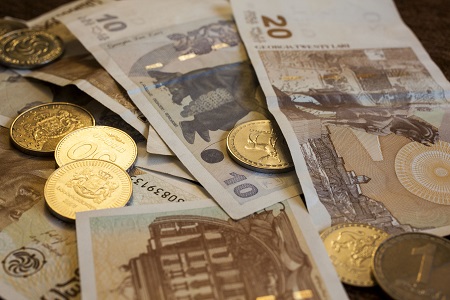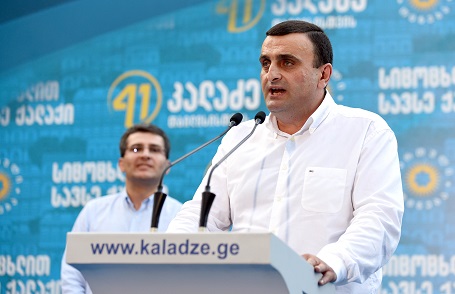Transparency International survey:
Georgia – one of Europe’s least corrupt nations

Transparency International, a German-based, non-profit organisation combating corruption and criminal activities has released its most recent survey - People and Corruption: Europe and Central Asia 2016.
The report, released two days ago, showed 12 percent of the Georgian population named corruption/bribery as one of three major problems the country currently faced.
With this data, Georgia was ranked against 41 foreign states to determine public perception of corruption. The findings put Georgia as one of leader countries with a low rate of corruption in Europe and Central Asia, following Switzerland, Sweden and Germany, and much higher that its immediate neighbouring countries.
Households in a number of Commonwealth of Independent States (CIS) countries are at a high risk of having to pay bribes to access basic public services. In Azerbaijan, the Kyrgyz Republic, Ukraine and Moldova around two in five households who had accessed public services paid a bribe (from 38-42%) and this rises to 50 percent in Tajikistan,” the TI report said.
Georgia, however, is a positive exception to this trend with a bribery rate of just seven percent, which is at least on a par with EU member states,” the report added.
Ukraine, Slovenia, Kosovo, Spain and Moldova showed the worst outcomes in the survey. In these countries the biggest majority of the population named corruption as one of three key problems their countries currently faced.
When it came to Georgia’s neighbours Russia, Turkey, Armenia and Azerbaijan, 39 percent of the Russian population named corruption among three main problems in their country, followed by Armenia with 37 percent, Turkey at 22 percent and Azerbaijan with 21 percent.
TI spoke to nearly 60,000 citizens in 42 countries in Europe and Central Asia about their daily life experiences with corruption to draft the survey.
 Tweet
Tweet  Share
Share





